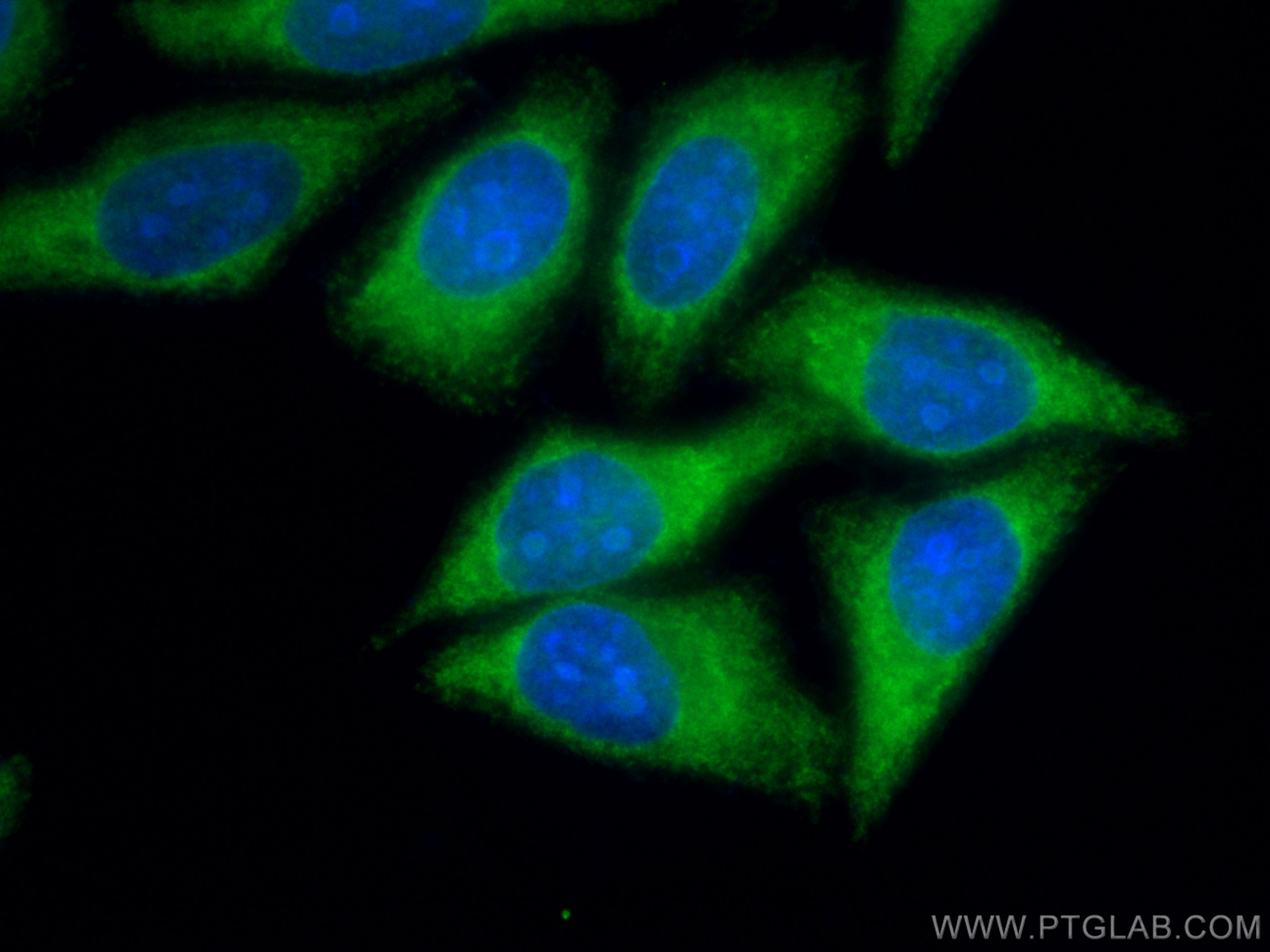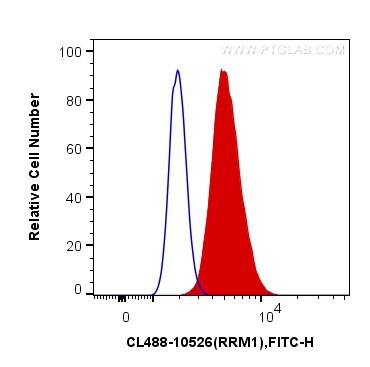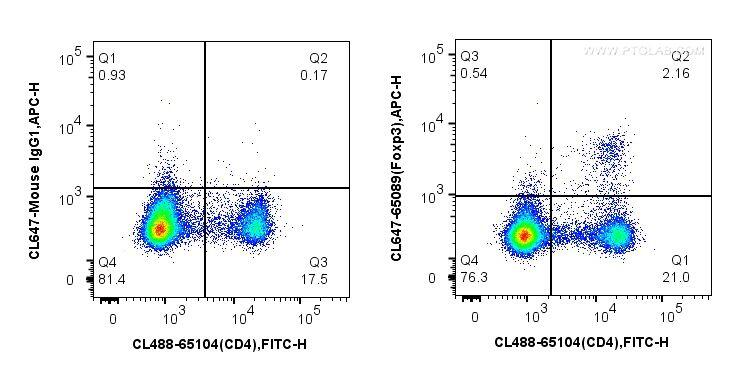- Phare
- Validé par KD/KO
Anticorps Polyclonal de lapin anti-RRM1
RRM1 Polyclonal Antibody for FC (Intra), IF
Hôte / Isotype
Lapin / IgG
Réactivité testée
Humain, rat, singe, souris
Applications
IF, FC (Intra)
Conjugaison
CoraLite® Plus 488 Fluorescent Dye
N° de cat : CL488-10526
Synonymes
Galerie de données de validation
Applications testées
| Résultats positifs en IF | cellules HepG2, |
| Résultats positifs en cytométrie | cellules A549, |
Dilution recommandée
| Application | Dilution |
|---|---|
| Immunofluorescence (IF) | IF : 1:50-1:500 |
| Flow Cytometry (FC) | FC : 0.40 ug per 10^6 cells in a 100 µl suspension |
| It is recommended that this reagent should be titrated in each testing system to obtain optimal results. | |
| Sample-dependent, check data in validation data gallery | |
Informations sur le produit
CL488-10526 cible RRM1 dans les applications de IF, FC (Intra) et montre une réactivité avec des échantillons Humain, rat, singe, souris
| Réactivité | Humain, rat, singe, souris |
| Hôte / Isotype | Lapin / IgG |
| Clonalité | Polyclonal |
| Type | Anticorps |
| Immunogène | RRM1 Protéine recombinante Ag0789 |
| Nom complet | ribonucleotide reductase M1 |
| Masse moléculaire calculée | 90 kDa |
| Poids moléculaire observé | 90 kDa |
| Numéro d’acquisition GenBank | BC006498 |
| Symbole du gène | RRM1 |
| Identification du gène (NCBI) | 6240 |
| Conjugaison | CoraLite® Plus 488 Fluorescent Dye |
| Excitation/Emission maxima wavelengths | 493 nm / 522 nm |
| Forme | Liquide |
| Méthode de purification | Purifié par affinité contre l'antigène |
| Tampon de stockage | PBS avec glycérol à 50 %, Proclin300 à 0,05 % et BSA à 0,5 %, pH 7,3. |
| Conditions de stockage | Stocker à -20 °C. Éviter toute exposition à la lumière. L'aliquotage n'est pas nécessaire pour le stockage à -20oC Les 20ul contiennent 0,1% de BSA. |
Informations générales
Ribonucleoside-diphosphate reductase large subunit (RRM1) is the main enzyme for de novo deoxyribonucleotide
synthesis necessary for DNA synthesis during the cell cycle as well as during DNA repair.
What is the molecular weight of RRM1?
The molecular weight of RRM1 is 90 kDa. RRM1 is a part of ribonucleotide reductase (RNR), which is composed
of two large RRM1 and two small RRM2 subunits in S phase and two large RRM1 and two alternative small p53R2
subunits in non-dividing quiescent cells (PMID: 17416930).
What is the subcellular localization of RRM1?
RRM1 localizes to the cytoplasm, where it is responsible for dNTP production, forming a complex with RRM2.
However, RRM1 can be recruited to DNA damage sites in the nucleus via interaction with Tip60 (PMID: 20159953).
What is the tissue expression pattern of RRM1?
RRM1 is ubiquitously expressed.
How is RRM1 expression regulated during the cell cycle and upon DNA damage?
Rrm1 gene expression levels depend on the cell cycle, and the highest mRNA levels are observed in S phase.
However, RRM1 protein levels are constant throughout the cell cycle due to long protein half-life, contrary to
RRM2, which is actively degraded after cell exit from S phase. During DNA damage, e.g., induced with genotoxins
or UV light, expression of RRM1 and RRM2/p53R2 is upregulated (PMID: 1551913 and 8798592).
Protocole
| Product Specific Protocols | |
|---|---|
| IF protocol for CL Plus 488 RRM1 antibody CL488-10526 | Download protocol |
| FC protocol for CL Plus 488 RRM1 antibody CL488-10526 | Download protocol |
| Standard Protocols | |
|---|---|
| Click here to view our Standard Protocols |




